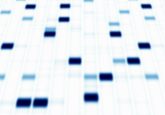Ultra-early biomarker could lead to more effective treatment for heart attack patients

Research provides proof-of-concept for new blood test in earlier heart attack diagnosis.
A team of scientists from Loyola University Chicago Stritch School of Medicine (IL, USA) have recently reported proof-of-concept work for a new blood test to detect a protein that could be an ultra-early biomarker for heart attack diagnosis. The protein, known as cardiac myosin binding protein-C (cMyBP-C), is released into the bloodstream by dying heart muscle within 15 minutes of cardiac damage. The researchers found that levels of the protein rise signficantly within 3 hours of cardiac damage.
Current diagnosis of heart attacks can involve an electrocardiogram, although this is not effective in screening for small-scale heart attacks. Some blood tests are also used, including testing for the protein cardiac troponin-1, and while this protein is specific to the heart it does not show in the blood for at least 4 to 6 hours following heart attack. Therefore, there is still a need for faster diagnosis to help clinicians provide more effective treatments.
Led by Sakthivel Sadayappan, Assistant Professor at the university, the researchers found that cMyBP-C levels in a group of 176 heart attack patients were more than 18-times higher than 153 individuals who have not suffered from heart attacks. In a separate analysis of 12 cardiac patients who underwent a procedure that mimicked a minor heart attack, the scientists found that cMyBP-C levels increased in a time-dependent manner and peaked at 4 hours. Similar results were found in a porcine model of heart attack.
Commenting on their findings, Sadayappan and colleagues said, “cMyBP-C has potential as an ultra-early biomarker for the diagnosis of heart attack, but this still needs to be validated using a large cohort study.” The researchers note that a blood test may lead to earlier diagnosis in patients who present at an emergency department shortly after coronary artery blockage; however, a systemic prospective investigation is required to establish such data for clinical use.
Sources: Kuster DWD, Cardenas-Ospina A, Miller L et al. Release kinetics of circulating cardiac myosin binding protein-C following cardiac injury. Am. J. Physiol. Heart Circ. Physiol. 306(4), H547–H556 (2014); New blood test could detect heart attacks more quickly.




